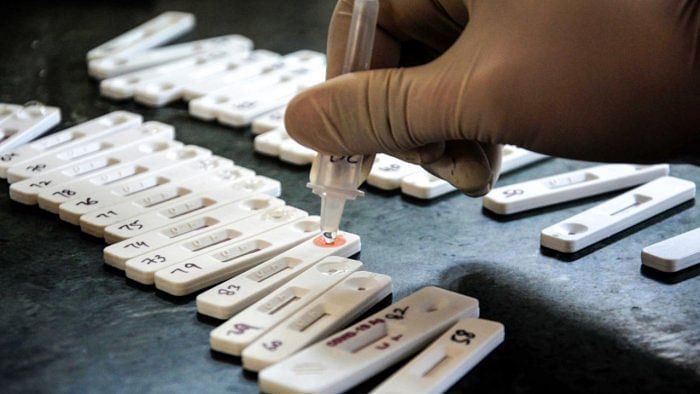
A compound generated by mammals effective in restricting influenza and flavivirus can also inhibit novel coronavirus that causes Covid-19, infectious diseases experts found in a three-year study.
Picolinic acid (PA) is a by-product of the L-tryptophan amino acid present in people and in other mammals. Scientists from the Indian Institute of Science (IISc) were working on a gene called UBR4, which is required by influenza for replication. It was at that point they found that picolinic acid was binding with this gene and inhibiting it.
“We discovered that picolinic acid had high antiviral abilities beyond influenza,” explained Assistant Professor (Dr) Shashank Tripathi of IISc’s Emerging Viral Pathogens Laboratory, Centre for Infectious Disease Research.
“In cell culture, it could inhibit dengue, zika, Japanese encephalitis, herpes, and parainfluenza, and the latest SARS-CoV-2 viruses. It took us a couple of years to figure this out. From there, we realised that picolinic acid was inhibiting the entry of ‘enveloped’ viruses, that is viruses with a membrane, into host cells, primarily by interfering with the ability of viruses to fuse with the cellular membrane,” he added.
Animal studies show that PA works as an oral antiviral against the SARS-CoV-2 virus, the Influenza A virus (IAV).
Dr Tripathi added that the compound will not work against “naked” viruses lacking a membrane (such as rhinovirus, parvoviruses, papovaviruses, adenoviruses, and reoviruses), in addition to bacteriophages.
In general, the viral replication cycle involves steps of entry, transcription, translation, replication, assembly, and release events. “The inhibition of viral entry is the most effective way to prevent viral infection, which is also the mechanism of action of neutralising antibodies elicited as part of natural or vaccine-mediated immunity,” scientists said.
They pointed out that human viruses primarily use either receptor-mediated endocytosis or viral-cellular membrane fusion or both to enter target host cells. The cellular factors involved in these processes are attractive targets to develop broad-spectrum viral-entry inhibitors.
“Since the action of inhibition is on the membrane of the virus — all viral pathogens with a membrane can be inhibited, including all variants of the novel coronavirus,” he added.
The discovery is important because picolinic acid, a natural compound, is found in humans — albeit in unknown amounts — which scientists are now trying to shed light on.
They added that they are currently looking for industrial partners for further clinical development of picolinic acid as a broad-spectrum antiviral.
Antiviral treatment boost
The discovery also has implications for the treatment of Covid-19 and other illnesses, because while vaccination technologies have seen major advances in the course of the two years of the pandemic, the development of antivirals, in general, has lagged.
Unlike vaccinations whose efficacy can be altered by the development of drug-resistant mutants, antivirals are less likely to be affected by viral resistance and will remain effective against emerging variants of the Sars-Cov-2 virus, the scientists wrote in their paper, which is currently in pre-print.
Watch the latest DH Videos here: